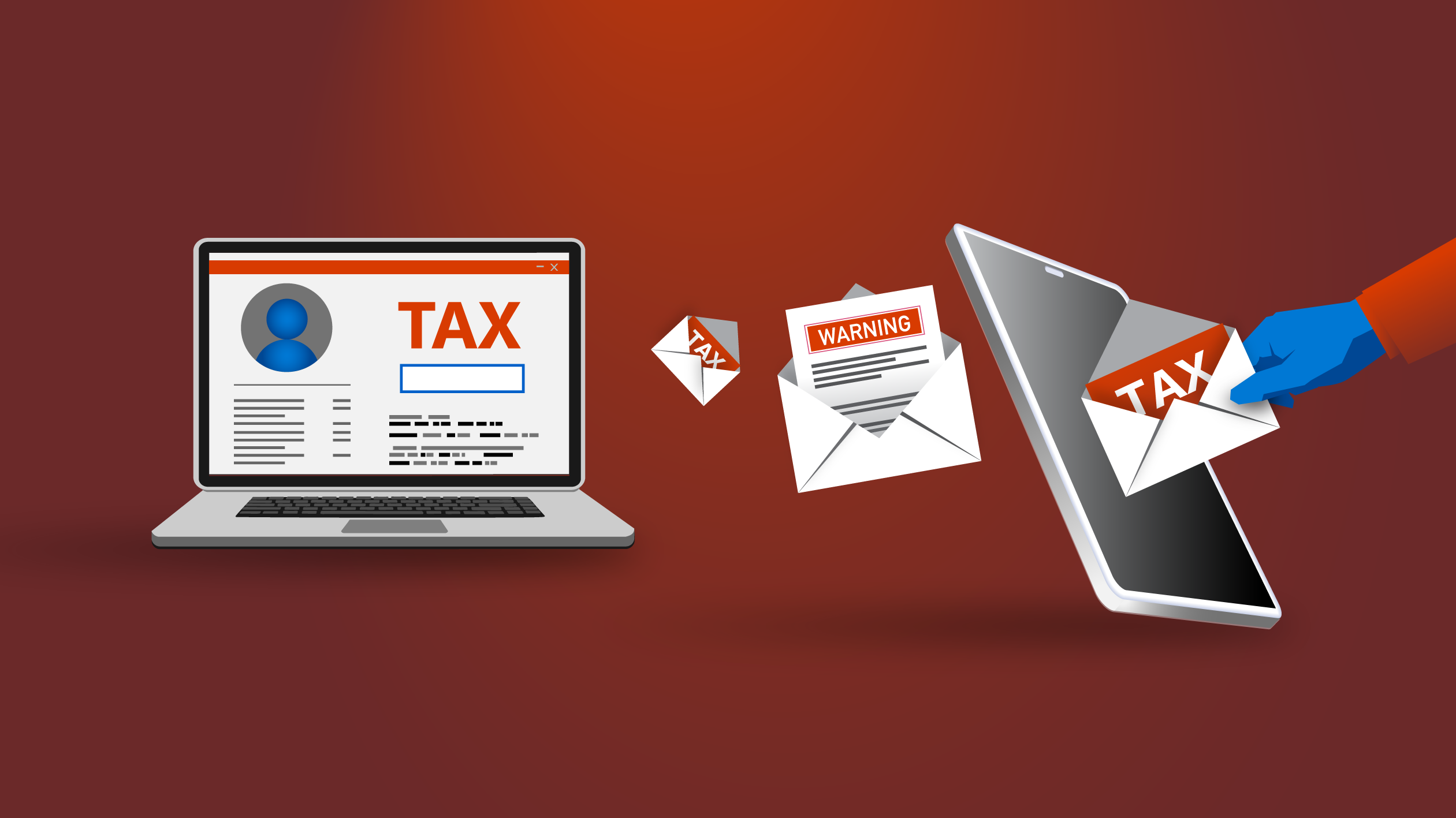Ready for Tax Season Phishing Scams?

Ready for Tax Season Phishing Scams? 2024
Tax season is almost here, and cybercriminals are ready to strike. They target both people and companies. The problem of tax fraud is getting worse. Are you ready to deal with it?
Next year, we will see a lot more. Crooks will try new tricks to trick you. They might pretend to be the or mess with your and. Their actions can hurt you.
ARK Solvers is a top company fighting against cyber threats. We will warn you and teach you how to protect yourself. Learn about, and the danger of fake websites.
Key Takeaways
- Understand the various types of tax season phishing scams, including IRS impersonation, W-2 fraud, and identity theft tax fraud.
- Recognize the tactics used by cybercriminals to steal personal and financial information, such as phishing emails and malicious websites.
- Learn how to protect yourself and your business from the growing threat of tax-related fraud, including verifying the authenticity of IRS communications.
- Discover the importance of securing tax documents and personal information to prevent identity theft and tax return fraud.
- Stay vigilant and up-to-date on the latest tax season security threats to safeguard your financial well-being.
Understand the Risks of Tax Season Phishing Scams
As tax season nears, knowing the risks of phishing scams is key. Scammers use IRS impersonation, W-2 fraud, and tax return theft. They aim to take your personal and financial info, causing identity theft and tax fraud.
IRS Impersonation Schemes
Scammers often pretend to be the IRS. They send fake emails, make surprise calls, or set up fake IRS websites. Their goal is to get your private info like your Social Security number or banking details.
W-2 Fraud and Tax Return Theft
They also try to steal your W-2 forms and tax data. This can happen through trickery, known as tax-related social engineering. Once they have your information, they may file fake tax returns and get tax refunds in your name.
Identity Theft and Tax Fraud Tactics
Identity theft and tax fraud are also dangers. They might submit fake tax returns, claim refunds, or get fake tax transcripts. The outcome can be severe, leading to financial fraud and problems fixing your identity.
Knowing these risks helps keep your money safe. Stay alert, check with the IRS about any contact, and secure your private information. With these steps, you can lower the risk of falling for tax-related cybersecurity threats.
Tax Season Phishing Scams
As tax season gets near, it’s key to watch out for phishing scams. These tricks can affect both people and companies. Cybercriminals pretend to be real groups, tricking others into giving away their personal and financial details.
Fake Tax Preparer Scams
One sneaky scam is when hackers act like tax pros. They offer services to people who don’t suspect a thing. They might say they can get a bigger tax refund or process it faster. This makes people give up their important details like Social Security numbers and bank accounts. Then, they file fake tax returns and steal the refunds. The real people are left to fix the problems of identity theft and money loss.
Tax Refund Phishing Attacks
Another common trick is sending fake IRS refund emails. The emails or sites look like they’re from the IRS. They claim a tax refund is due. Clicking on links or downloading attachments can lead to malware. Or it takes them to fake sites that steal personal information.
Malicious Tax Software and Websites
Criminals might also make malicious tax software or websites. These tools can directly steal data. Or trick users into giving out their details. It’s crucial to only use tax sites and apps from places you trust.
To stay safe, always be on the lookout for tax season scams. Knowing the techniques cybercriminals use helps you stay protected. This way, your personal and money details are safer from being used in tax scams.
Protecting Yourself from IRS Impersonation Fraud
As tax season comes around, watch out for IRS impersonation fraud. Scammers pretend to be from the IRS. They use tricks to get your personal and financial information.
Verifying IRS Communications
When you get a message claiming to be from the IRS, check if it’s real. The IRS usually contacts you by mail. They won’t ask for immediate payment over the phone or threaten you illegally.
If you get a strange email, text, or call from someone saying they’re from the IRS, be careful. Don’t share any of your info. Instead, contact the IRS yourself to check if it’s real.
Securing Tax Documents and Personal Information
Keep your tax papers and personal data safe. Put your tax papers in a locked place or a safe computer folder. Don’t give out your Social Security number, bank info, or other personal details unless you made the first contact and checked their ID.
By being cautious and protecting your IRS communications and info, you cut your risk of being scammed. Always be alert and careful with your tax-related stuff. This is the best way to stay safe from these online threats.
Tax Return Identity Theft and Preventive Measures
Tax return identity theft is a big worry now. It risks people’s money. Cybercriminals wait for tax season to steal info. This leads to fake tax returns and stolen identities. Yet, you can take steps to keep your identity safe and avoid these scams.
Monitoring Credit Reports
Checking your credit reports often is key to stopping identity theft. Look at your credit history to spot weird activities. Shifting dealing with them stops identity thieves. It also protects your financial name.
Filing Tax Returns Early
Filing your taxes early helps fight tax identity theft. By doing this, you beat fraudsters to your refund. So, you lower the chances of being a victim. This also avoids the trouble that comes with being targeted.
Using Identity Protection PINs
The IRS’ Identity Protection PIN (IP PIN) is a powerful defense. It’s a six-digit code that adds security. This PIN stops fraudsters from using your details for fake refunds. Using the IP PIN is a smart move. It helps keep your tax info safe and your filings honest.
Conclusion
In conclusion, we’ve discussed the increasing risk of tax season phishing scams. Cybercriminals use various tricks to get personal and financial info. The article shows dangers like IRS impersonation and how to fight back.
To stay safe, keep an eye out and make sure messages are real. Also, protect your tax details. ARK Solvers suggests checking credit reports and sending tax returns early. Using IP PINs can keep your identity and tax info safe.
This tax season, everyone must be careful. Watch out for frauds online and with tax software. By following our tips and working with experts like ARK Solvers, you can face tax season confidently. This helps avoid problems with identity theft and financial scams.
FAQ
What are IRS impersonation schemes?
IRS impersonation schemes trick people. Cybercriminals pretend to be from the IRS. They use false calls, emails, or texts to demand money or offer fake refunds.
How can criminals steal W-2 forms and tax return information?
Criminals use tricks like phishing and malware to steal W-2s and tax info. They target businesses, tax pros, or anyone to get this info. They then file fake tax returns and take the refunds.
What are the tactics used for identity theft and tax fraud?
Thieves use stolen info, like Social Security numbers, to claim tax refunds. They can also open fake accounts or make illegal buys. This can ruin your credit and cost you time and money to fix.
What are fake tax preparer scams?
Scammers act like real tax pros to get personal and money info. They might offer to help with taxes but aim to steal your identity or money.
How do tax refund phishing attacks work?
Phishing emails or sites look real but are fake. They claim you have a refund and ask for personal details. Be careful and don’t click on suspicious links.
What are the risks associated with malicious tax software and websites?
Bad tax software and websites can infect your devices or steal your info. This can lead to identity theft, money loss, and exposure of your tax data.
How can I verify the authenticity of IRS communications?
Watch out for IRS contacts that weren’t asked for. Real IRS communication starts with mail. They won’t threaten jail or ask for fast money. Call the IRS yourself using a trusted number or check their website.
How can I secure my tax documents and personal information?
Store your tax papers in a safe spot. For digital info, use strong passwords and be careful online. Keep your tax details safe.
How can I monitor my credit report to detect identity theft?
Check your credit reports often. Look for strange activity. If you see a problem, tell the credit firms and the IRS fast.
Why is it important to file my tax return early?
Filing early stops identity thieves. They try to steal refunds early in the year. Beat them by filing as soon as you can.
What is an Identity Protection PIN (IP PIN) and how can it help protect me?
An IP PIN helps stop thieves from using your Social Security number. It’s a six-digit code from the IRS. With an IP PIN, your tax return is safer from fraud.







